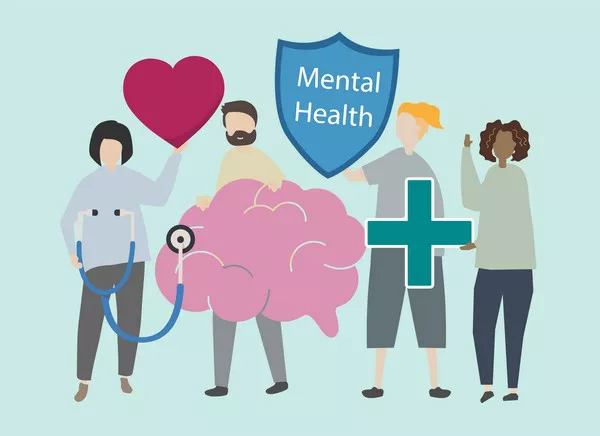A groundbreaking psychological therapy designed by researchers at University College London (UCL) has demonstrated a significant reduction in aggression among male offenders with antisocial personality disorder (ASPD). The study, published in The Lancet Psychiatry and funded by the National Institute for Health and Care Research (NIHR), examined the effectiveness of a modified mentalisation-based therapy (MBT) for managing aggression and antisocial behaviors in this high-risk population.
Background
ASPD is a mental health condition marked by a consistent pattern of violating others’ rights, often accompanied by deceit, impulsivity, aggression, and a lack of remorse. This disorder is commonly linked to criminal behavior, creating challenges for both individuals and society. Traditional treatments have yielded mixed results, leaving many individuals with ASPD without effective options for improvement. This study, however, presents a promising new therapy that shows substantial promise for reducing aggression and criminal behavior in male offenders with ASPD.
About the Study
The therapy, MBT-ASPD, builds upon mentalisation-based treatment (MBT), a therapeutic approach that helps individuals understand their own thoughts and feelings, as well as those of others. The modified version of MBT-ASPD was specifically designed to improve interpersonal skills, increase empathy, and enhance self-awareness in individuals with ASPD.
The study was the largest of its kind, involving 157 male offenders on probation in England and Wales, who received a 12-month course of MBT-ASPD in addition to standard probation services. A control group of 156 participants received only standard probation services without MBT-ASPD. The therapy consisted of weekly 75-minute group therapy sessions led by trained MBT clinicians, along with monthly 50-minute individual therapy sessions.
Study Results
The results of the study were striking:
Aggression Reduction: Participants who received MBT-ASPD showed a 50% reduction in aggression levels compared to those in the control group.
Symptom Reduction: The MBT-ASPD group exhibited a 63% decrease in ASPD symptoms at the 12-month follow-up, significantly outpacing the control group.
Offense Reduction: Over a three-year follow-up period, participants in the MBT-ASPD group committed 46% fewer offenses compared to the control group.
These findings suggest that MBT-ASPD may offer a highly effective intervention for reducing both aggression and criminal behavior in male offenders with ASPD. This is particularly significant considering the high personal and societal costs associated with antisocial behaviors, including increased crime rates and public health burdens.
Implications for Treatment and Society
ASPD has long been considered a difficult disorder to treat, with limited therapeutic options available. This study provides compelling evidence that MBT-ASPD can significantly improve outcomes for individuals with this condition, benefiting both the individuals and society at large by reducing criminal behavior and the broader economic costs associated with ASPD.
Professor Peter Fonagy, Chief Investigator at UCL Psychology & Language Sciences, emphasized the potential impact of this therapy, stating, “Our findings demonstrate that a psychological intervention requiring relatively limited therapist training can meaningfully improve outcomes for individuals with this condition while also reducing their impact on society.”
Comparison with Other Treatments
While other psychological treatments, such as Cognitive Behavioral Therapy (CBT), have been tested for ASPD with mixed results, MBT-ASPD stands out due to its structured approach that targets the core features of the disorder, including emotional regulation, empathy, and interpersonal skills. The study’s findings provide some of the strongest evidence to date that structured therapy can be effective in treating aggression and criminal behaviors in individuals with ASPD.
Future Research Directions
The success of MBT-ASPD in reducing aggression and criminal behavior has inspired the research team to consider further applications. Professor Anthony Bateman, co-author and lead clinician, stated, “This study suggests that clinicians can now be more optimistic about treating individuals with antisocial traits, who are often seen as untreatable and consequently face barriers in accessing both physical and mental health care.”
Encouraged by these results, the researchers are now calling for additional studies to evaluate whether MBT-ASPD can be beneficial for individuals involved in more severe violent behavior, such as intimate partner violence. Further research will also be needed to assess how variations in treatment intensity and duration might influence long-term outcomes.
Study Limitations
While the study’s findings are promising, there are some limitations. The study’s design made it difficult to isolate the specific effects of MBT-ASPD from the additional attention participants received in the therapy sessions. Missing data, exacerbated by COVID-19-related delays, also posed challenges in data collection. Furthermore, since the study focused specifically on male offenders aged 21 and older under probation supervision, the results may not directly apply to other populations, such as younger offenders or individuals outside the probation system.
Conclusion
The study’s findings suggest that MBT-ASPD could be a transformative intervention for reducing aggression and criminal behavior in male offenders with antisocial personality disorder. By improving self-awareness, empathy, and interpersonal decision-making, MBT-ASPD offers hope for individuals who have previously been seen as untreatable. The researchers’ call for further studies to extend the therapy’s applications to a wider range of individuals involved in severe violence is a crucial next step in understanding and addressing the challenges posed by antisocial personality disorder.
You Might Be Interested In:
-
Low Vitamin D in First Trimester Linked to Higher Preterm Birth Risk and Reduced Fetal Length
-
Fewer Than 20% of Women Screened for Cardiovascular Risk After Pregnancy Complications

